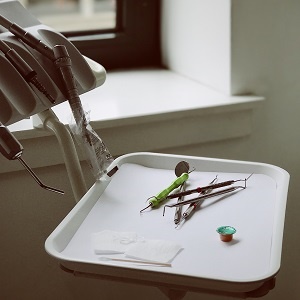
Just the thought of getting root canal treatment makes many people nervous. This type of treatment usually follows a dental abscess, which can be extremely painful.
But don’t be concerned if your dentist mentions root canal treatment: it’s fairly quick and it will take the pain away.
Infection of the pulp tissue
In the middle of each tooth is the pulp chamber, which runs from the crown of the tooth down each root. The pulp chamber and the root canal system are the “life of the tooth”, containing blood vessels, nerves and connective tissue (the pulp).
For various reasons (e.g. a cracked tooth or deep cavity), the pulp tissue can die (pulp necrosis) and bacterial infection may follow, with the production of pus at the tip of the root in the jaw bone. This infection (or abscess) is contained within the jaw bone, and the pressure build-up can cause swelling and excruciating pain.
The pain tends to increase when you lie down, because of the increased blood pressure in the head, and the abscess can throb severely with every heartbeat. A tooth with an abscess is also sometimes called a “hot tooth”, because hot liquids that touch it can make the pain worse. Ice water, in turn, helps to relieve the pain.
Antibiotic therapy can help to control the bacterial infection and the build-up of pus. This should be followed by draining of the abscess, which can be achieved by extraction (i.e. pulling of the tooth) or root canal treatment.
Root canal treatment
Your dentist is likely to opt for root canal treatment if:
- A tooth has been fractured, cracked or chipped during some sort of trauma or accident, leaving the pulp chamber exposed.
- A deep cavity or repeated treatment have exposed the pulp.
The purpose of root canal treatment is to remove all pulpal tissue and bacterial matter, draining the abscess and flushing out pus from the root canal under sterile conditions. This is followed by the filling of the root canal system.
The procedure is a complex one. Under local anaesthetic, your dentist is likely to isolate the infected tooth using rubber dam – a thin sheet that isolates the operative site from the rest of the mouth. Access to the root canal system is then gained via a hole drilled into the tooth.
Note that some of the pulp tissue can still be vital (alive) and cause some pain when your dentist removes the tissue. Fortunately, thanks to the anaesthetic, you should feel fairly comfortable during the procedure.
A complex series of files interspersed with sterilising solutions are then used to flush the canal system and shape the canals to receive the root canal treatment filler. After the tooth has been filled, your dentist is likely to place a crown or cap on the tooth to protect it from future damage.
Possible complications
Complications associated with root canal treatment may include:
- Reinfection of the bone around the root system.
- A brittle tooth that’s susceptible to fracture.
- Failure of the treatment because your dentist is unable to properly clean and fill the canal system.
- Failure of the treatment because the root canal system is over-filed or over-filled.
- Fractured files or other instruments left in the root canal system.
It’s important to have the tooth crowned or capped to prevent decay and fracture of the tooth or roots (a fractured tooth usually requires extraction). Discuss this option with your dentist.
Practical tips to protect your teeth
Remember that prevention is always better than cure.
- Brush and floss your teeth twice a day, and rinse regularly.
- Go for a dental check-up twice a year. A cavity that’s detected early means that you can avoid root canal treatment altogether.
- Cut out sugar.
If you have a dental abscess, it’s important to see your dentist as soon as possible, as the tooth is susceptible to fracture. It’s also advisable to start a course of antibiotics at least 24 hours prior to going for root canal treatment.
Written by dentist Dr Lance Videtzky of City Dental Care, Cape Town. (B.D.S.) Rand. February 2019.
Read more:
- Fillings




 Publications
Publications
 Partners
Partners












